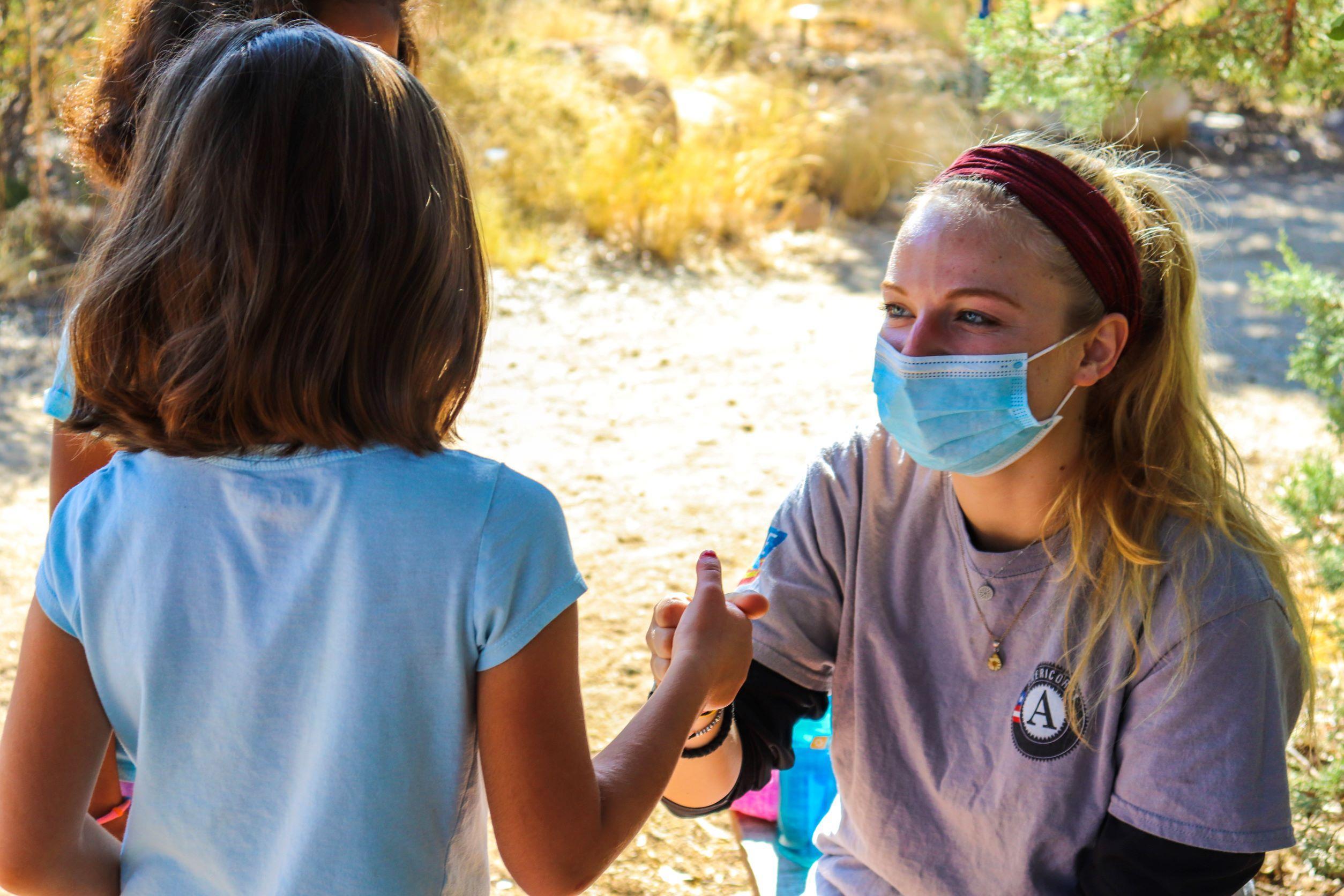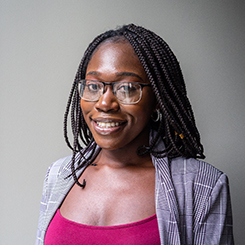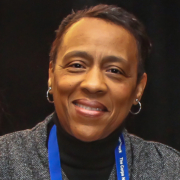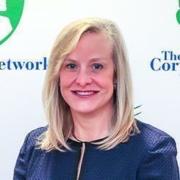
In August, we are highlighting “Next Steps and Reflections” as Corpsmembers move on to their next adventure. We interviewed Abby Ruby, a Mechanical Engineering graduate from the University of Alabama, who finished her AmeriCorps service term with GEM Environmental in June. Abby shared how her experience with GEM shaped her and prepared her for her next steps.
Q: How did you learn about this position with GEM Environmental and what interested you in joining?
Abby: In my senior year of college, I realized I wanted to find a way to combine my passion for STEM with giving back to the community before I got into my engineering career.
First, I looked at teaching through Peace Corps; I got offered a position in Tanzania as a middle and high school physics teacher. That was really cool, but then COVID came, and all Peace Corps assignments were cancelled so I started looking into AmeriCorps. That’s when I found the position as a STEM Education Outreach |Specialist with GEM, which seemed like the absolute perfect opportunity.
I really wanted to find a way to support my community while also using my passion for STEM. I also wanted to gain experience outside of just engineering. It was a great way to gain that professional development and do something that was relevant to engineering and to STEM. It was only a year-long, so it was easy to transition back into engineering.
Q: What were you doing before you joined?
Abby: It was my senior year of college; I had already done two engineering internships and I realized I wanted to do something different before going back to engineering and sitting on the computer all day. I was also doing things around my community, like volunteering and working as a camp counselor.
Service Term with GEM:
Q: Can you give us a general overview of your responsibilities as the STEM Education Outreach Specialist?
Abby: The position is called STEM Education Outreach Specialist which hits the nail on the head for primary responsibilities: doing outreach to local schools and organizations, providing STEM education. This included teaching lessons or creating curriculums to support teachers.
With COVID and virtual learning, it was huge that we started doing childcare. We would do outdoor educational lessons to provide a safe environment for kids who didn’t have somewhere to engage in school… whether they had extra needs that couldn’t be met at home, or they didn’t have wi-fi or computers, they would come in and we would provide education.
Beyond that, I did a lot of volunteer recruitment, [helped with] fundraising a lot of grant writing. I helped lead a lot of local fundraisers. The other big part was supporting [my] supervisor in meeting facilitation and planning out the future of GEM and trying to create sustainability in our programs.
Q: Why is STEM – and particularly STEM Education — important to you?
Abby: Very early in high school I realized that I have a knack for math and science. Not only did I excel in those subjects, I also really enjoyed them – the step-by-step procedure of solving a problem, or doing experiments really spoke to me.
Because of my grades, I was able to get a full ride in college. That STEM background provided so many opportunities and now I’m going into an engineering career. [STEM] provides the safety net of a good income, but beyond that, I see STEM everywhere – I think [it’s beneficial] to learn the logic behind things…it’s a good field to get into because you can apply STEM to anything and use that background to get so far in life.
That’s something that I want to do: inspire other kids with the fact that STEM isn’t just math and science; it’s what you can [do with STEM]. You can do computers or building or stuff like that.
Q: Tell us about a highlight of your service. Are there any particularly memorable projects you worked on or people with whom you interacted? Any accomplishments you’re especially proud of?
Abby: I think the biggest highlight – it was mostly the whole first half of my term – was supporting the COVID childcare program run through the Prescott Community Nature Center. I had experience as a camp counselor and a tutor but not really teaching a whole class, leading a whole lesson, or building curriculums.
This was a great way to develop my communication skills. I feel like I didn’t get those communication skills from my previous internships. [This helped me learn] how to communicate with people of diverse backgrounds and kids. If you can communicate a complex STEM subject to a kid, you can communicate that to anybody.
Being able to diversify my communication skills was a highlight of my term with AmeriCorps and being able to learn from people of different backgrounds is so incredibly helpful to me. Being able to learn how to run a non-profit from other organizations that I worked with, and how to be an effective educator from the teachers that I worked with. I know one specific person taught me almost everything that I knew about educating and environmental education and that was Ellen Bashor who works at the Community Nature Center and is also a Professor at Prescott College. She would do education workshops and I learned a lot from that, but also, I learned a lot from watching people. Seeing what styles, they use to work with kids and then adapting that to my own style was just so helpful.
Q: What was your favorite aspect of this program? What were some of the challenges?
Abby: My favorite aspect would probably be the flexibility that I had to come up with my own projects. It was a great way to create leadership on my own. At first it was kind of difficult. It was like, “Where do I start? I’m in this brand-new position that I don’t have much background in and I don’t have many connections in the community,” but, as I went on, this turned out to be a huge benefit. It helped so much with learning how to make connections, recruit people, get people on board with ideas.
Another highlight was learning how to talk to people from different backgrounds because I’m used to just working with engineers who talk in engineering terms. Being able to work with teachers, with non-profit leaders, college students, volunteers – that was awesome. The other side of that, which was a challenge at first, was figuring out how to deal with that, how to stylize it, how to alter my style of communication.
Another challenge I had early on was not knowing what the expectations are for [the program]. In AmeriCorps I feel like you have your list of responsibilities that don’t really encompass everything that you are supposed to be doing that year…so I think [I had to realize] what I could do is more than what was outlined.
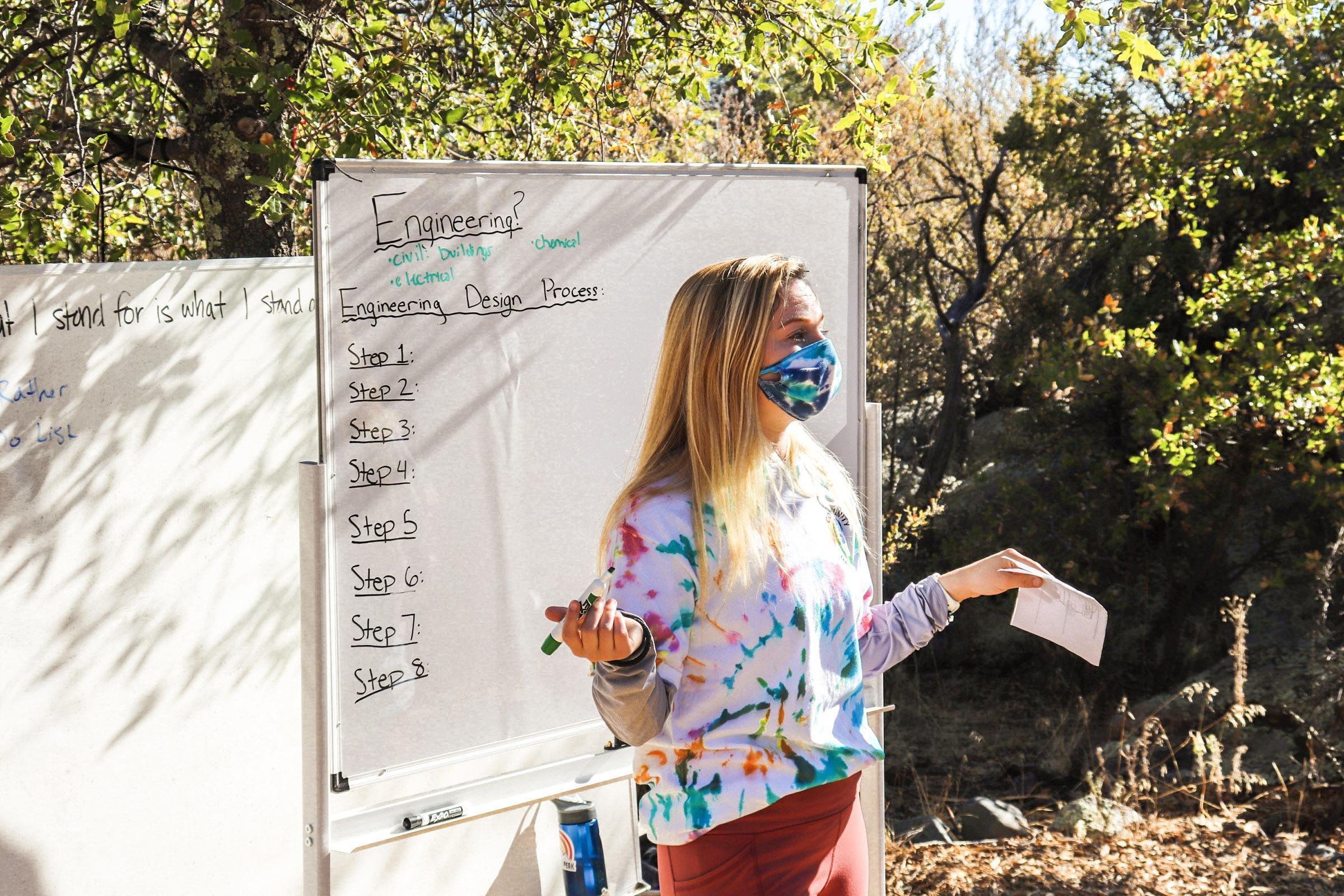
Reflection and Looking Ahead:
Q: What do you feel you learned or gained from your service term? What do you think you’ll take away from your service experience?
Abby: I think that communication styles was huge. I talked about how, before, I had that engineering style of communication. Good communication is such a marketable talent and soft skill to have.
And beyond that, taking initiative and being accountable is something that I learned from AmeriCorps. Especially during COVID you must be responsible. Also, leadership, I developed a lot [of leadership skills], which is a unique opportunity straight out of college, to facilitate meetings and recruit people and lead groups of people for different projects and programs.
Q: Tell us about the next step on your career journey –– we hear you’re taking a position as an engineer?
Abby: I’m going to be working for a company called GEON Performance Solutions up in the Midwest. It’s called the G-force Technical Rotation Program. It’s a three-year program where every year I go to a different branch of engineering or engineering-adjacent field, which is what I’m excited about because I have that strong technical background, but then also, through AmeriCorps, I learned how much I love to meet groups of people, how much I love planning projects and creating programing. I’ll do two engineering rotations and then do a rotation in project management, which is kind of like managing people and meeting project deadlines so it will be a great way to combine my passion for STEM with my communication and leadership talents that I really want to mold.
Q: How do you plan to use your AmeriCorps Education Award(s)?
Abby: I will be using the [AmeriCorps Education Award] to pay back my loans. Even though I had a full ride to college, I had to take out loans to pay for housing.
Q: What advice would you give to other young people interested in AmeriCorps?
Abby: I would say to not be afraid. To just jump in and take ownership of your program right away. But to do that, just constantly ask questions and make connections with as many people as you can. The more people you can talk to, and the more perspectives you can get, the more you can see where the need really is. I know that we wouldn’t have developed the COVID childcare program if we hadn’t recognized that need in the community and kind of altered our organization’s focus from older kids to K-6 where the need was.
I would also say to constantly do professional development. I started applying to jobs in October and every single interview that I did, I got better and better at showing how to market the skills that I was learning from AmeriCorps. The webinars that I watched about how to do interviews and how to move on from my AmeriCorps service helped infinitely.
Q: What advice would you give to other young women interested in STEM?
Abby: I think it’s difficult for a lot of women because they are constantly not being heard by their supervisors and by their professors. I would say just make sure that your voice is heard. Learn how to communicate in a firm way, but also stand true to who you are. Don’t try to tone down your personality to fit in with the men, but be firm in your beliefs, firm in your personality. Something that I was always told by my supervisors, whether they be men or women, was that as a woman in STEM you must know twice as much as everyone around you, so just never stop learning, never stop growing professionally, use the disadvantages you might face to your advantage, see yourself as the underdog that is going to succeed and be the most successful person out there.


